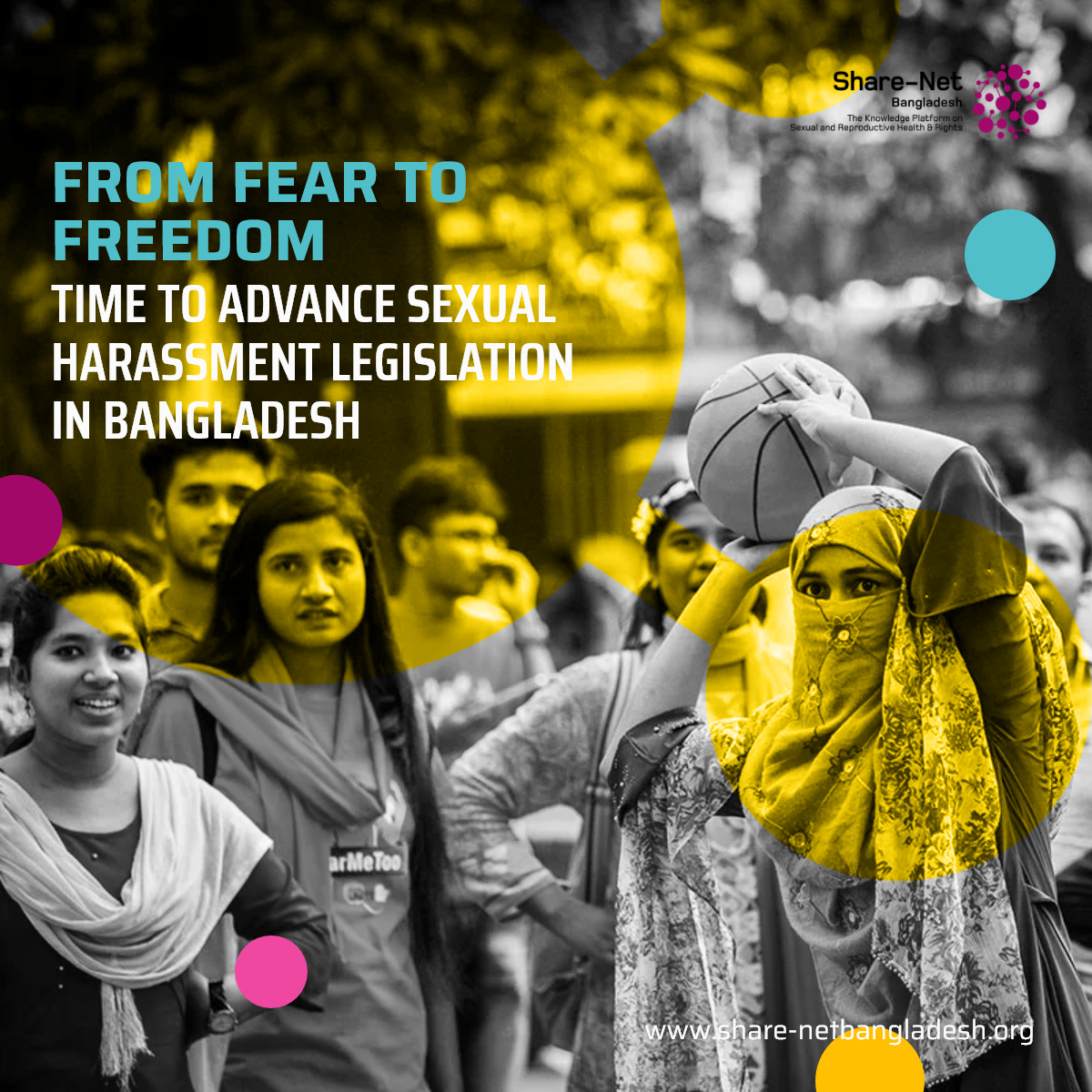From Fear to Freedom: Time to Advance Sexual Harassment Legislation in Bangladesh
“I was in second grade when an elderly relative touched my chest while holding me on his lap. I knew something was wrong but didn’t tell my mother,” shared Salma Sultana Sumi*, a university student in Bangladesh. Years later, the memory lingers, shaping her decisions and instilling fear. “Even now, I carry a small knife in my bag,” she added.
Sumi’s story mirrors the experiences of countless women in Bangladesh who face sexual harassment in workplaces, public spaces, and even online. The Bangladesh Women’s Lawyers’ Association (BWLA) revealed in a 2021 analysis that 84 percent of women face harassment across these environments. Online abuse, a growing menace, often goes unaddressed due to the lack of comprehensive laws.
In 2009, the Bangladesh High Court issued a directive to prevent sexual harassment at workplaces and educational institutions. While this was a landmark decision, it fell short of comprehensive coverage. Harassment in public spaces and online remains rampant, with no strong legal framework to deter perpetrators.
Sabina Ali*, a faculty member and member of the Sexual Harassment Complaint Committee at a private university, explained the challenges of enforcement. “We dismiss perpetrators from campus, but how do we ensure they don’t repeat their behavior elsewhere?” she questioned.
Advocacy groups like Bangladesh Mahila Parishad (BMP) and UN Women have worked tirelessly to fill these gaps. With support from civil society organisations and UN agencies, they drafted the Sexual Harassment Prevention and Protection Bill. This proposed legislation aims to define harassment clearly, streamline reporting processes, and impose penalties such as fines, suspension, or dismissal from employment.
“Without formal laws, it’s difficult to hold perpetrators accountable,” emphasised Masuda Rosy, a BMP activist who contributed to the draft bill.
Sexual harassment profoundly impacts women’s sexual and reproductive health and rights (SRHR). It limits their freedom of movement, access to education, and participation in workplaces, perpetuating gender inequalities. The absence of safety undermines their ability to make decisions about their lives, including their sexual and reproductive health.
Research underscores the importance of legislation in addressing gender-based violence (GBV). The Gender Snapshot 2024 report highlighted that countries with specific laws on violence against women experience significantly lower rates of such violence. This reinforces the urgency for Bangladesh to enact its first comprehensive sexual harassment law.
For many women, the fear of harassment leads to self-imposed restrictions. Sumi shared how male teachers and peers’ inappropriate comments on social media made her feel unsafe. “When a teacher asked to meet me in his office after hours, I didn’t go. Even the next day, I brought friends along,” she recounted.
Women’s safety advocates argue that changing societal mindsets is as important as legal reforms. Public awareness campaigns and education can challenge the normalisation of harassment. Programs like the 16 Days of Activism in 2018 have shown promise by engaging communities in addressing these issues.
UN Women’s Representative, Gitanjali Singh, stressed collective responsibility. “We must break the silence around harassment and speak up. Everyone has a role to play,” she said.
The proposed legislation represents more than legal protection—it is a step toward societal transformation. By addressing harassment comprehensively, Bangladesh can ensure a safer future for women and girls, reinforcing their SRHR and ending the culture of silence.
*Names have been changed for anonymity.
Source: UN Women
Picture Credit: UN Women/Fahad Kaiser


